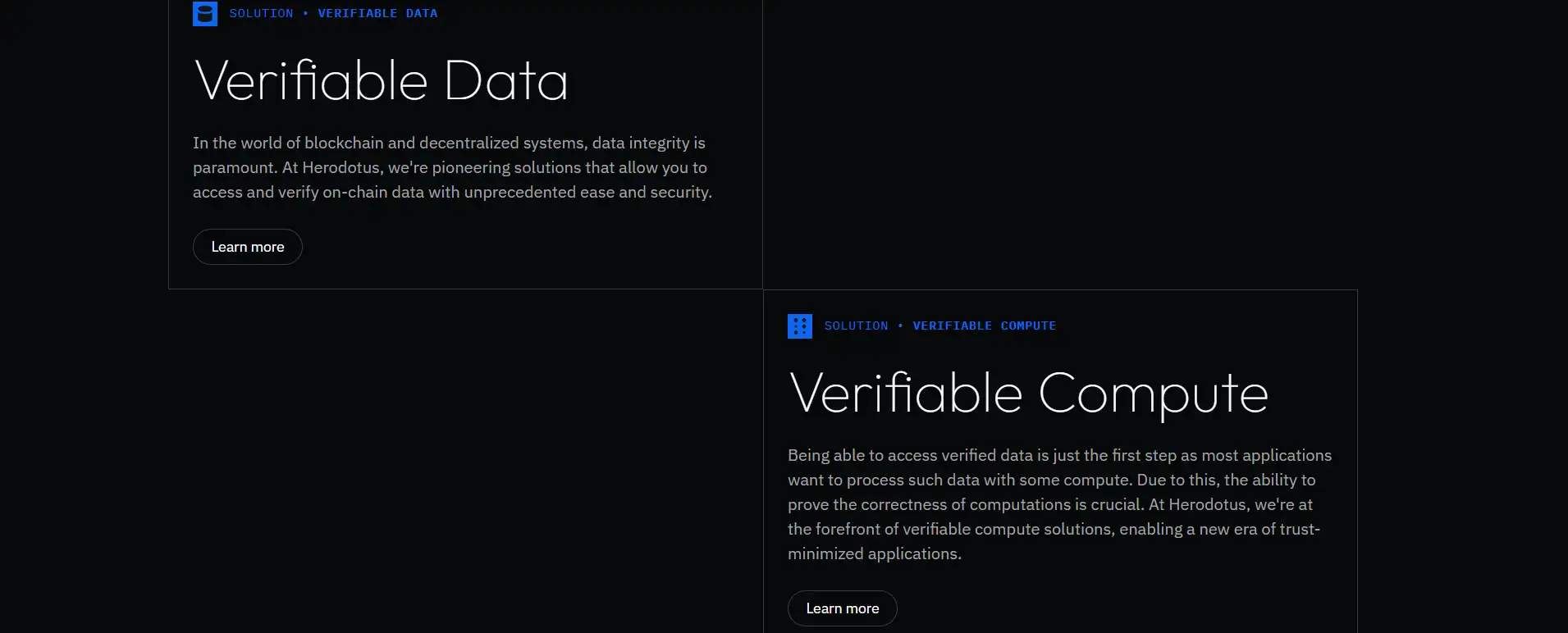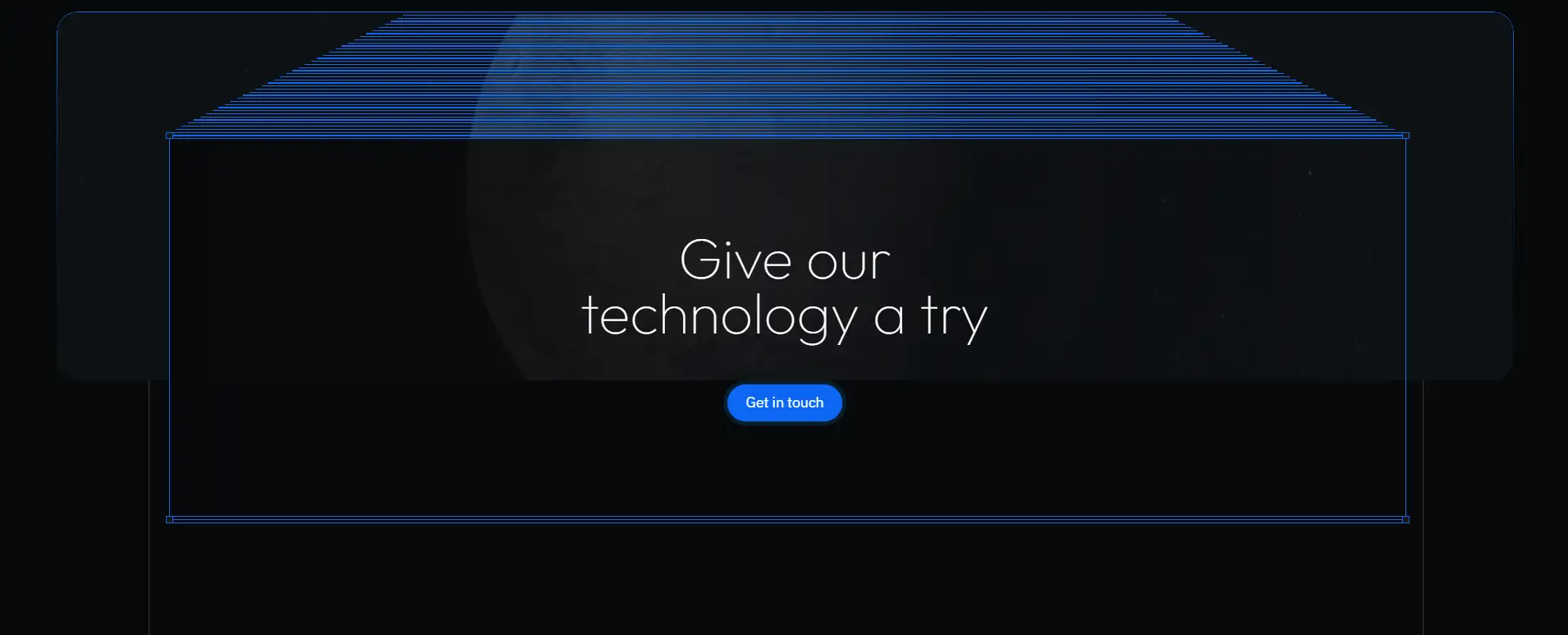About Herodotus
Herodotus is a cryptographic infrastructure provider focused on enabling trust-minimized applications across blockchain ecosystems. With a core mission to verify data and computations without relying on centralized authorities, Herodotus is pioneering solutions like Storage Proofs, Verifiable Compute, and blockchain scaling frameworks. These technologies allow developers to create decentralized applications with high performance, security, and transparency.
Designed "by devs for devs," Herodotus brings cutting-edge zero-knowledge proof (ZKP) systems to mainstream development workflows. By abstracting complex cryptographic processes and offering easy-to-integrate APIs, the platform empowers projects to build on verifiable data integrity and provable computations. Whether powering enterprise-grade blockchain solutions or enabling rapid interaction across rollups, Herodotus is establishing the backbone of a sovereign digital future.
Herodotus is a cutting-edge cryptographic infrastructure platform that provides trust-minimized solutions for blockchain ecosystems. Built to solve core problems around verifiable data, verifiable compute, and blockchain scalability, Herodotus leverages Zero-Knowledge (ZK) proofs and STARK-based cryptography to deliver secure, efficient, and interoperable solutions across chains. It aims to make the blockchain experience more reliable by replacing assumptions and trust with mathematical certainty.
The platform's suite of products includes Storage Proofs for verifiable on-chain data, the Herodotus Data Processor (HDP) for verifiable compute, and scaling solutions like Sequencer-to-Sequencer (S2S) communication. By offering APIs and abstracting complex cryptography, Herodotus allows developers to build secure, auditable, and scalable dApps without deep cryptographic expertise. Whether you're verifying historical Ethereum data, building cross-chain applications, or running off-chain computations for on-chain use, Herodotus equips developers with advanced primitives to do so efficiently.
As the demand for ZK infrastructure grows, Herodotus operates in a highly innovative space with several prominent competitors. Projects like Succinct offer similar verifiable computation primitives using zkSNARKs and recursive proof systems. Axiom enables developers to query historical Ethereum data using ZK-proofs. Lagrange focuses on ZK coprocessors to bring off-chain computation on-chain, and Nexus is building infrastructure for privacy-preserving, verifiable AI on blockchains.
What differentiates Herodotus is its modular and developer-first approach. From historical block accumulators to data processor modules, Herodotus simplifies complex proofs into API-friendly services. This makes it possible to incorporate secure data access, private computation, and scalability improvements across DeFi, gaming, AI, and enterprise sectors. The team’s deep technical roots in ZK-STARKS and Cairo make Herodotus a highly reliable solution for any builder looking to create next-gen, trustless blockchain applications.
Herodotus provides numerous benefits and features that make it a powerful choice for building trustless blockchain applications:
- Verifiable Data Integrity: Use Storage Proofs to independently verify historical and current blockchain data across multiple networks.
- Cross-Chain Compatibility: Seamlessly verify and compute data across Ethereum, Starknet, Optimism, Polygon, zkSync, and more.
- Developer-Friendly APIs: Accessible APIs for integrating zero-knowledge verifiability without requiring cryptographic expertise.
- Enterprise-Grade Compute: The Herodotus Data Processor offers cost-efficient, privacy-preserving compute modules for custom workflows.
- Next-Gen Blockchain Scaling: S2S and Integrity Verifier unlock Layer 3 performance and inter-rollup messaging with reduced latency.
- Modular Ecosystem: Flexible compute and data modules allow developers to balance privacy, openness, and composability.
Herodotus makes it simple for developers and teams to integrate verifiable data and compute capabilities into their blockchain applications:
- Visit the Platform: Head to herodotus.dev to explore the available solutions and documentation.
- Explore the Docs: Access technical documentation and implementation guides to understand Storage Proofs, Data Processor Modules, and more.
- Use the APIs: Start with the Storage Proof API to verify blockchain state, or the Data Processor API to compute over custom-defined data lakes.
- Deploy on Supported Chains: Herodotus currently supports Ethereum, Arbitrum, Optimism, Polygon, zkSync, Starknet, and more.
- Contact for Enterprise Use: If you're building at scale, get in touch through their contact form to explore Herodotus Cloud services.
Herodotus FAQ
Herodotus goes beyond traditional Merkle proofs by utilizing advanced ZK-STARKs and dual Merkle Mountain Range (MMR) accumulators. This enables not only the verification of data states, but also efficient access to historical blockchain data across multiple chains. Traditional Merkle proofs require predefined trees and often lack cross-chain compatibility, while Herodotus delivers a more scalable, decentralized alternative with its Storage Proofs and historical block accumulator framework.
Yes, Herodotus is built with cross-chain compatibility in mind. Through its Storage Proof APIs and Data Processor modules, developers can access, define, and verify historical data from several blockchain networks—such as Ethereum, Polygon, Starknet, and zkSync—without having to write custom circuits. This simplifies the process of building trust-minimized, multi-chain applications using Herodotus infrastructure.
The Herodotus Data Processor (HDP) supports private inputs in its verifiable computation model. This means developers can run complex off-chain computations using sensitive data, and only publish the proof of correctness on-chain—without exposing raw values. Powered by ZK-STARKs, HDP allows for custom compute modules that maintain data confidentiality while ensuring verifiability and integrity. Learn more at herodotus.dev.
Sequencer-to-Sequencer (S2S) is a specialized framework created by Herodotus to enable horizontal scaling between Ethereum rollups and app-chains. It allows these chains to exchange data off-chain with millisecond-level latency, which is critical for applications like real-time games or high-frequency trading. By using Storage Proofs and the Data Processor, S2S ensures these messages are verifiable and secure, eliminating delays caused by traditional bridging or messaging layers.
No, the Herodotus platform is built specifically to abstract the complexity of zero-knowledge proofs and cryptographic computations. Through intuitive APIs like the Storage Proof API and Data Processor API, developers can integrate advanced verifiable data and compute into their applications without needing to write or understand ZK circuits. This makes it highly accessible for web3 developers, even without a background in cryptography.
You Might Also Like












